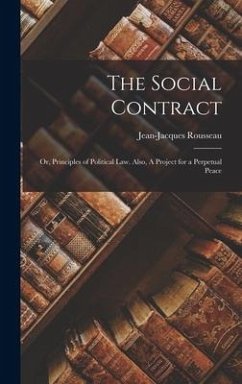
The Dynamic Social Contract
An American Case Study

PAYBACK Punkte
16 °P sammeln!
This book continues an exploration begun by Charles Mills and Carole Pateman with their examinations of the nuisances of the Western social contract. The work examines the social contract within the variable of space or proximity and incorporates concepts first proposed by Benedict Anderson, that of concepts of shared communal belonging or imagined. The social contract is explored as a dynamic sociopolitical instrument that is influenced by the context of human interactions, specifically, space. Space or proximity exists as a variable, either increasing interactions and challenging sociopoliti...
This book continues an exploration begun by Charles Mills and Carole Pateman with their examinations of the nuisances of the Western social contract. The work examines the social contract within the variable of space or proximity and incorporates concepts first proposed by Benedict Anderson, that of concepts of shared communal belonging or imagined. The social contract is explored as a dynamic sociopolitical instrument that is influenced by the context of human interactions, specifically, space. Space or proximity exists as a variable, either increasing interactions and challenging sociopolitical norms, or decreasing interactions and reinforcing sociopolitical norms. We can trace proximity within a sociopolitical model, with connections becoming more and more abstract as proximity increases and group membership becomes more abstract - global, global region, nation, religion, ethnicity, national region, city, town/village, and kin. We accept that kinship or hereditary connections are the most atomistic. And within this tree of proximity, as proximity increases the ties of group membership become more tenuous, and the incentive of collective action decreases production is the binding glue of the world economic system, and the framework of the study, but it is within the bounds of the productive system that the challenge of proximity and membership collide. The collision occurs as the proximity of production increases, and the reaction is a dynamic response within the social contract, witnessed as a retraction.














